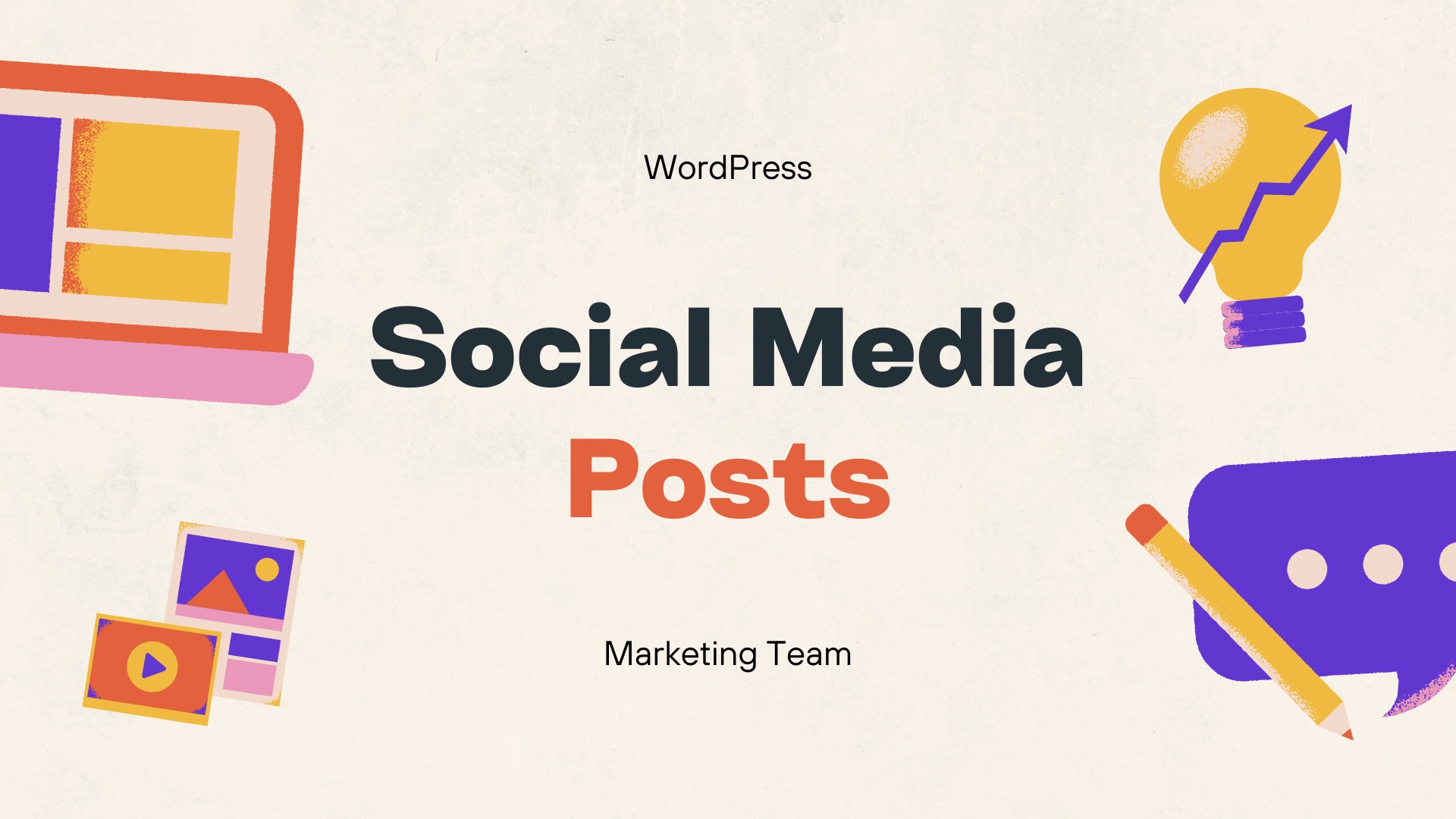In the vast world of digital marketing, understanding how to leverage various tools and features is crucial for success. One question many content creators ask is, do WordPress tags help with your social media posts? The short answer is yes, but the implications run deeper. WordPress tags can significantly enhance your content strategy, making it easier to promote your posts on social media and engage your audience effectively. This blog will explore how WordPress tags work, their benefits for social media sharing, best practices for using them, and much more.
What Are WordPress Tags?
Before delving into their role in social media, it’s essential to understand what WordPress tags are. Tags are keywords or labels that you can assign to your content in WordPress to categorize it better. They help organize your posts and make it easier for readers to find related content on your site. For instance, if you run a cooking blog, you might use tags like “vegan,” “desserts,” or “quick meals.”
Tags are different from categories, which are broader classifications of your content. While categories help group your posts under larger themes (like “Recipes” or “Health”), tags provide more specific descriptors. This granularity allows users to navigate your site more intuitively, leading to a better user experience.
The Connection Between WordPress Tags and Social Media
So, how exactly do WordPress tags play a role in your social media strategy? Let’s explore several key points:
1. Enhanced Content Organization
One of the primary benefits of using tags is that they help you organize your content effectively. When your posts are well-organized, it’s much easier to promote related articles on social media. For example, suppose you have several blog posts tagged under “Healthy Eating.” In that case, you can create a series of social media posts linking to these articles, showcasing your expertise and providing value to your audience.
A well-organized site encourages users to explore more of your content, which is beneficial when sharing links on platforms like Facebook, Twitter, or Instagram. By providing a clear structure through tags, you can direct your audience to explore various related topics, increasing their engagement and interaction with your content.
2. Improved Visibility on Social Media
When you share a post on social media, the platforms often analyze the tags associated with that content to understand what it’s about. Using relevant and trending tags can increase your visibility on these platforms. For instance, if you share a post about “Fitness Tips” and use tags like #Fitness, #HealthyLiving, or #Wellness, your content is more likely to appear in search results and recommendations, attracting a larger audience.
Moreover, social media algorithms often favor posts that contain specific, relevant tags. This means that the more strategically you use tags in your WordPress posts, the better chance you have of reaching a wider audience on social media.
3. Encouraging User Engagement
User engagement is crucial for social media success. When users click on a tag, they are taken to a page displaying all posts associated with that tag. This can lead to increased time spent on your site as users explore more of your content. High engagement signals to social media platforms that your content is valuable, which can boost its reach and visibility.
For example, if a user clicks on a tag like “Travel Tips” on your blog and finds several related articles, they may spend more time reading and interacting with your content. This can create a snowball effect where users share your posts, increasing your reach on social media.
4. Building a Cohesive Brand Image
Using consistent tags across your posts can help build a cohesive brand image. When your audience sees recurring themes represented through your tags, they are more likely to recognize and engage with your brand on social media. This consistency helps establish your authority in a particular niche.
For instance, if you consistently tag your fitness-related content with tags like “Fitness Motivation,” “Healthy Recipes,” and “Workout Plans,” your audience will start associating your brand with those themes. This recognition can lead to increased loyalty and interaction from your audience on social media platforms.
5. SEO Benefits
While the focus here is on social media, it’s worth mentioning that using tags can also benefit your SEO efforts. Tags help improve your site’s internal linking structure. When users click on a tag, they are directed to a list of related posts, enhancing the interconnectedness of your content. This internal linking can help search engines better understand the relationships between your content, potentially improving your site’s ranking.
Additionally, if your tags include relevant keywords, they can also help your posts appear in search results. If users search for specific terms and your tags align with those terms, your content may gain more visibility, driving traffic not just from social media but also from search engines.
Best Practices for Using Tags in WordPress
To maximize the benefits of tags, consider the following best practices:
1. Be Specific and Relevant
When creating tags, be specific and relevant to the content of your posts. Avoid generic tags that don’t add value. For instance, instead of using a tag like “Food,” opt for “Italian Recipes” or “Gluten-Free Desserts.” Specific tags help users find the exact content they’re interested in, enhancing their experience on your site.
2. Limit the Number of Tags
While it may be tempting to use numerous tags, it’s best to limit them. A good rule of thumb is to use between 5 to 10 relevant tags per post. Over-tagging can clutter your posts and dilute the effectiveness of each tag, making it harder for users to navigate your content.
3. Create a Tag Hierarchy
Consider organizing your tags into a hierarchy to make navigation even easier for your audience. For example, you might have a main tag for “Health” with sub-tags like “Nutrition,” “Exercise,” and “Mental Wellbeing.” This structure helps users navigate your site intuitively and encourages them to explore more of your related content.
4. Monitor Tag Performance
Regularly monitor the performance of your tags to see which ones drive traffic and engagement. This data can help you refine your tagging strategy and focus on the tags that resonate most with your audience. If you notice that certain tags consistently lead to higher engagement, consider creating more content around those topics.
5. Use Tags in Your Social Media Strategy
When sharing your posts on social media, remember to include relevant tags. This practice can help increase visibility and interaction. For example, if you write a blog post about “Summer Travel Tips,” use tags like #TravelTips, #SummerVacation, and #ExploreMore when sharing it on platforms like Instagram or Twitter. This will help your post reach the audience interested in those topics.
Common Mistakes to Avoid
While using tags can be beneficial, there are common mistakes that can hinder your efforts:
1. Overusing Tags
Using too many tags can dilute your content and make it harder for users to navigate your site. Stick to a focused set of relevant tags for each post.
2. Ignoring Tag Consistency
Inconsistency in tagging can confuse your audience. Ensure that you use the same tags consistently across related posts to maintain a cohesive brand image.
3. Neglecting Tag Performance Analysis
Failing to monitor the performance of your tags can lead to missed opportunities. Regularly review your tag analytics to identify which tags are driving traffic and which ones may need adjustment.
4. Using Unrelated Tags
Avoid using tags that are not relevant to your content just to attract attention. This can frustrate users and may lead to a higher bounce rate as they don’t find the content they expected.
How Tags Affect Your Content Marketing Strategy
Incorporating tags into your content marketing strategy can lead to improved organization, user experience, and engagement. Here’s how you can effectively integrate tags into your overall strategy:
1. Content Planning
When planning your content calendar, think about how you will tag each post. By considering the tags in advance, you can create a more organized content strategy that aligns with your overall goals.
2. Cross-Promotion
Use tags to create opportunities for cross-promotion within your content. For instance, if you have a post tagged “Healthy Eating” and another tagged “Fitness,” link them in a way that encourages users to explore both topics.
3. Engaging Your Audience
Tags can also be used to engage your audience actively. Encourage readers to explore more content by suggesting related articles based on their interests, using tags as a reference point.
4. Social Media Campaigns
Consider creating social media campaigns that revolve around specific tags. For example, if you’re running a campaign focused on “Sustainable Living,” use that tag consistently across all related posts and promote them on your social media channels.
5. Building a Community
By consistently using relevant tags, you can help build a community around your content. Encourage users to engage with your posts and join discussions related to the tags you use. This can lead to increased interaction and loyalty from your audience.
Final Thought on Do WordPress Tags Help with Your Social Media Posts?
So, do WordPress tags help with your social media posts? Absolutely! By organizing your content, improving visibility, encouraging engagement, and enhancing your brand image, tags can significantly impact how your content performs on social media. To make the most of your tags, be specific, limit their use, and monitor their performance regularly.
Interesting Reads:
Do Plugins Have Shortcodes in WordPress? Find Out Here!
Can You Make a Living WordPress Upwork? Tips and Insights!
Can you create an android app from a WordPress site
Last modified: October 1, 2024




